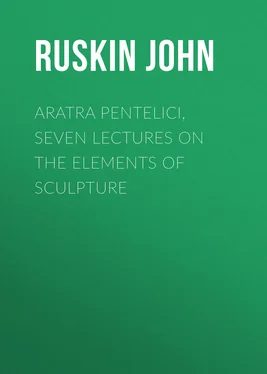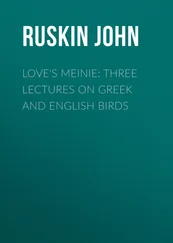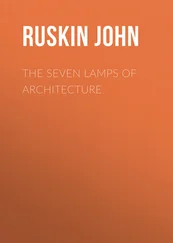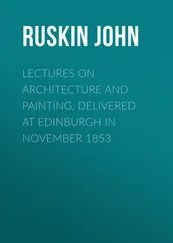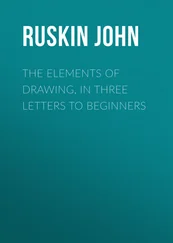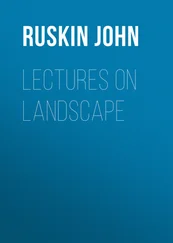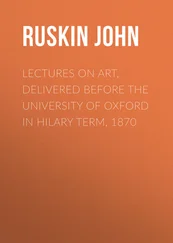John Ruskin - Aratra Pentelici, Seven Lectures on the Elements of Sculpture
Здесь есть возможность читать онлайн «John Ruskin - Aratra Pentelici, Seven Lectures on the Elements of Sculpture» — ознакомительный отрывок электронной книги совершенно бесплатно, а после прочтения отрывка купить полную версию. В некоторых случаях можно слушать аудио, скачать через торрент в формате fb2 и присутствует краткое содержание. Жанр: foreign_antique, foreign_home, literature_19, visual_arts, на английском языке. Описание произведения, (предисловие) а так же отзывы посетителей доступны на портале библиотеки ЛибКат.
- Название:Aratra Pentelici, Seven Lectures on the Elements of Sculpture
- Автор:
- Жанр:
- Год:неизвестен
- ISBN:нет данных
- Рейтинг книги:5 / 5. Голосов: 1
-
Избранное:Добавить в избранное
- Отзывы:
-
Ваша оценка:
- 100
- 1
- 2
- 3
- 4
- 5
Aratra Pentelici, Seven Lectures on the Elements of Sculpture: краткое содержание, описание и аннотация
Предлагаем к чтению аннотацию, описание, краткое содержание или предисловие (зависит от того, что написал сам автор книги «Aratra Pentelici, Seven Lectures on the Elements of Sculpture»). Если вы не нашли необходимую информацию о книге — напишите в комментариях, мы постараемся отыскать её.
Aratra Pentelici, Seven Lectures on the Elements of Sculpture — читать онлайн ознакомительный отрывок
Ниже представлен текст книги, разбитый по страницам. Система сохранения места последней прочитанной страницы, позволяет с удобством читать онлайн бесплатно книгу «Aratra Pentelici, Seven Lectures on the Elements of Sculpture», без необходимости каждый раз заново искать на чём Вы остановились. Поставьте закладку, и сможете в любой момент перейти на страницу, на которой закончили чтение.
Интервал:
Закладка:
12. The information would, I presume, to most of you, be gratuitous. If it were not, and you chanced to be in a sick state of body in which you disliked peaches, it would be, for the time, to you false information, and, so far as it was true of other people, to you useless. Nearly the whole study of æsthetics is in like manner either gratuitous or useless. Either you like the right things without being recommended to do so, or, if you dislike them, your mind cannot be changed by lectures on the laws of taste. You recollect the story of Thackeray, provoked, as he was helping himself to strawberries, by a young coxcomb's telling him that "he never took fruit or sweets." "That," replied, or is said to have replied, Thackeray, "is because you are a sot, and a glutton." And the whole science of æsthetics is, in the depth of it, expressed by one passage of Goethe's in the end of the second part of Faust;—the notable one that follows the song of the Lemures, when the angels enter to dispute with the fiends for the soul of Faust. They enter singing—"Pardon to sinners and life to the dust." Mephistopheles hears them first, and exclaims to his troop, "Discord I hear, and filthy jingling"—"Mis-töne höre ich: garstiges Geklimper." This, you see, is the extreme of bad taste in music. Presently the angelic host begin strewing roses, which discomfits the diabolic crowd altogether. Mephistopheles in vain calls to them—"What do you duck and shrink for—is that proper hellish behavior? Stand fast, and let them strew"—"Was duckt und zuckt ihr; ist das Hellen-brauch? So haltet stand, und lasst sie streuen." There you have also, the extreme, of bad taste in sight and smell. And in the whole passage is a brief embodiment for you of the ultimate fact that all æsthetics depend on the health of soul and body, and the proper exercise of both, not only through years, but generations. Only by harmony of both collateral and successive lives can the great doctrine of the Muses be received which enables men "χαιρειν ορθως,"—"to have pleasure rightly;" and there is no other definition of the beautiful, nor of any subject of delight to the æsthetic faculty, than that it is what one noble spirit has created, seen and felt by another of similar or equal nobility. So much as there is in you of ox, or of swine, perceives no beauty, and creates none: what is human in you, in exact proportion to the perfectness of its humanity, can create it, and receive.
13. Returning now to the very elementary form in which the appeal to our æsthetic virtue is made in our breakfast-plate, you notice that there are two distinct kinds of pleasantness attempted. One by hues of color; the other by proportions of space. I have called these the musical elements of the arts relating to sight; and there are indeed two complete sciences, one of the combinations of color, and the other of the combinations of line and form, which might each of them separately engage us in as intricate study as that of the science of music. But of the two, the science of color is, in the Greek sense, the more musical, being one of the divisions of the Apolline power; and it is so practically educational, that if we are not using the faculty for color to discipline nations, they will infallibly use it themselves as a means of corruption. Both music and color are naturally influences of peace; but in the war trumpet, and the war shield, in the battle song and battle standard, they have concentrated by beautiful imagination the cruel passions of men; and there is nothing in all the Divina Commedia of history more grotesque, yet more frightful, than the fact that, from the almost fabulous period when the insanity and impiety of war wrote themselves in the symbols of the shields of the Seven against Thebes, colors have been the sign and stimulus of the most furious and fatal passions that have rent the nations: blue against green, in the decline of the Roman Empire; black against white, in that of Florence; red against white, in the wars of the Royal houses in England; and at this moment, red against white, in the contest of anarchy and loyalty, in all the world.
14. On the other hand, the directly ethical influence of color in the sky, the trees, flowers, and colored creatures round us, and in our own various arts massed under the one name of painting, is so essential and constant that we cease to recognize it, because we are never long enough altogether deprived of it to feel our need; and the mental diseases induced by the influence of corrupt color are as little suspected, or traced to their true source, as the bodily weaknesses resulting from atmospheric miasmata.
15. The second musical science which belongs peculiarly to sculpture, (and to painting, so far as it represents form,) consists in the disposition of beautiful masses. That is to say, beautiful surfaces limited by beautiful lines. Beautiful surfaces , observe; and remember what is noted in my Fourth Lecture of the difference between a space and a mass. If you have at any time examined carefully, or practiced from, the drawings of shells placed in your copying series, you cannot but have felt the difference in the grace between the aspects of the same line, when inclosing a rounded or unrounded space. The exact science of sculpture is that of the relations between outline and the solid form it limits; and it does not matter whether that relation be indicated by drawing or carving, so long as the expression of solid form is the mental purpose; it is the science always of the beauty of relation in three dimensions. To take the simplest possible line of continuous limit—the circle: the flat disk inclosed by it may indeed be made an element of decoration, though a very meager one; but its relative mass, the ball, being gradated in three dimensions, is always delightful. Here 8 8 The crystal ball above mentioned.
is at once the simplest, and, in mere patient mechanism, the most skillful, piece of sculpture I can possibly show you,—a piece of the purest rock-crystal, chiseled, (I believe, by mere toil of hand,) into a perfect sphere. Imitating nothing, constructing nothing; sculpture for sculpture's sake of purest natural substance into simplest primary form.
16. Again. Out of the nacre of any mussel or oyster shell you might cut, at your pleasure, any quantity of small flat circular disks of the prettiest color and luster. To some extent, such tinsel or foil of shell is used pleasantly for decoration. But the mussel or oyster becoming itself an unwilling modeler, agglutinates its juice into three dimensions, and the fact of the surface being now geometrically gradated, together with the savage instinct of attributing value to what is difficult to obtain, make the little boss so precious in men's sight, that wise eagerness of search for the kingdom of heaven can be likened to their eagerness of search for it ; and the gates of Paradise can be no otherwise rendered so fair to their poor intelligence, as by telling them that every gate was of "one pearl."
17. But take note here. We have just seen that the sum of the perceptive faculty is expressed in these words of Aristotle's, "to take pleasure rightly" or straightly—χαιρειν ορθως. Now, it is not possible to do the direct opposite of that,—to take pleasure iniquitously or obliquely—χαιρειν αδικως or σκολιως,—more than you do in enjoying a thing because your neighbor cannot get it. You may enjoy a thing legitimately because it is rare, and cannot be seen often (as you do a fine aurora, or a sunset, or an unusually lovely flower); that is Nature's way of stimulating your attention. But if you enjoy it because your neighbor cannot have it,—and, remember, all value attached to pearls more than glass beads, is merely and purely for that cause,—then you rejoice through the worst of idolatries, covetousness; and neither arithmetic, nor writing, nor any other so-called essential of education, is now so vitally necessary to the population of Europe, as such acquaintance with the principles of intrinsic value, as may result in the iconoclasm of jewelry; and in the clear understanding that we are not, in that instinct, civilized, but yet remain wholly savage, so far as we care for display of this selfish kind.
Читать дальшеИнтервал:
Закладка:
Похожие книги на «Aratra Pentelici, Seven Lectures on the Elements of Sculpture»
Представляем Вашему вниманию похожие книги на «Aratra Pentelici, Seven Lectures on the Elements of Sculpture» списком для выбора. Мы отобрали схожую по названию и смыслу литературу в надежде предоставить читателям больше вариантов отыскать новые, интересные, ещё непрочитанные произведения.
Обсуждение, отзывы о книге «Aratra Pentelici, Seven Lectures on the Elements of Sculpture» и просто собственные мнения читателей. Оставьте ваши комментарии, напишите, что Вы думаете о произведении, его смысле или главных героях. Укажите что конкретно понравилось, а что нет, и почему Вы так считаете.
